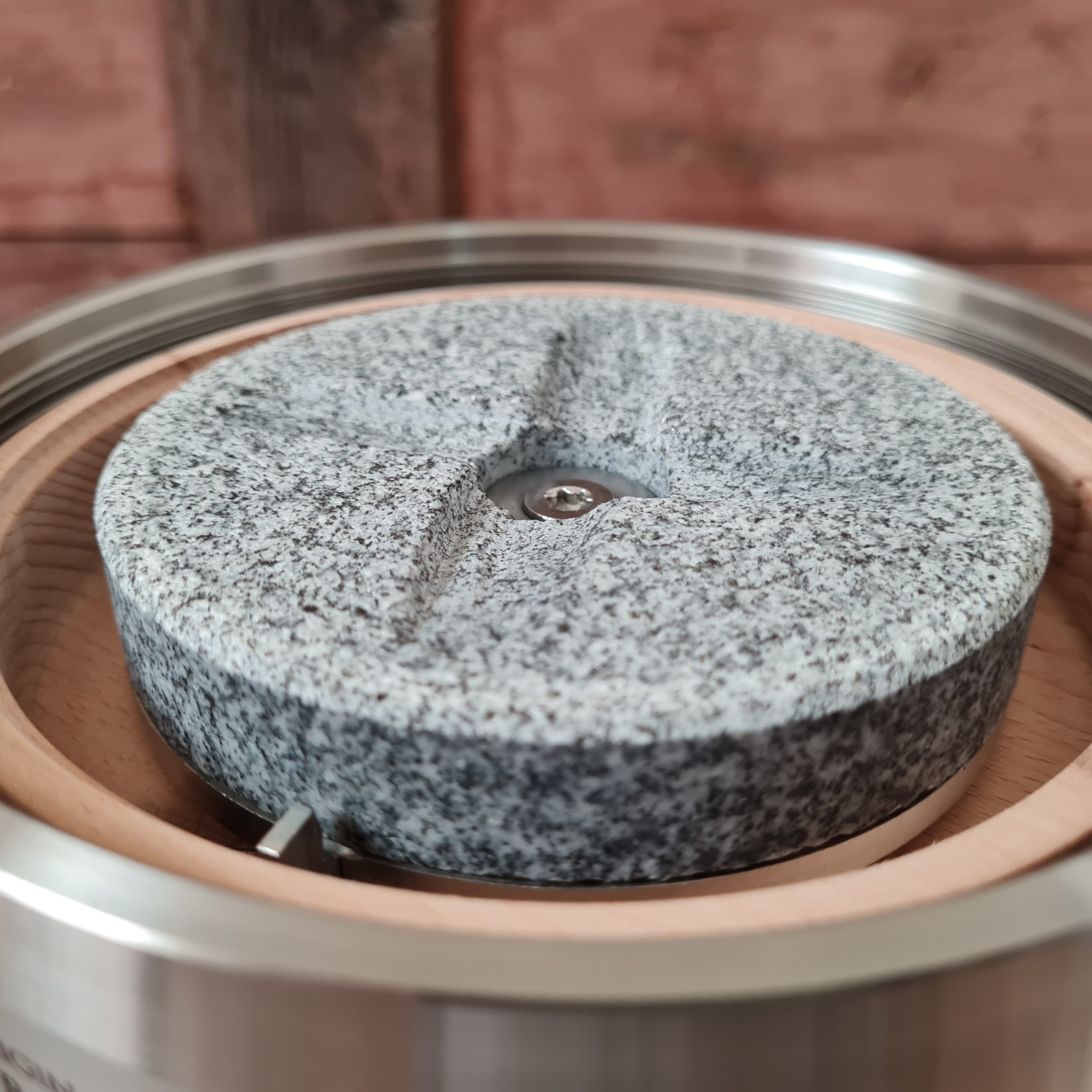10 simple tips for a healthy diet in everyday life A healthy diet is the key to a long and fulfilling life. …

The invaluable importance of freshly milled flour has come into considerable focus in recent years. More and more people are looking for a way to grind their own grain to bake their own bread.
This requires a mill, and make the right choice is often difficult for the non-expert. Here we show differences that you should pay attention to:
The type of grinding stones and their production
Grinding causes the grinding stones to abrade – but where does the abrasion go? Into the flour!
Corundum ceramic grinding stones are artificially produced and contain aluminum oxide
Very often, the artificially produced corundum-ceramic grinding stones are called natural stone mixtures or with other names natural, beautifully colored.
If you should ask yourself why artificial stones are used, the answer is very simple: artificial stones are baked in the oven (like ceramics), fired and not laboriously mined, in nature.
Corundum-ceramic millstones thus already have a prefabricated, desired shape and mill geometry. Corundum is a modification of aluminum oxide with the chemical designation α-Al2O3.
Although artificially produced corundum-ceramic grinding stones can provide good grinding results, they also involve certain risks. Due to the artificial composition of the stones, there is a risk of particles coming off the millstone and getting into the flour. This can happen if there are stones in the grain that were not removed before milling. This can lead not only to unpleasant surprises when preparing food, but also to damage to the teeth. Who doesn’t know it, the crunch of sand in bread or cake? Who has never bitten on a little stone in bread?
This is almost non-existent with stones from nature! Because at Salzburger Mühlen, your grain bites GRANIT.
Natural granite stones “originate” over thousands of years in nature, so they are inert. That is, the stones are not compound and without artificial binders!
The extraction and processing is therefore much more complex and cost-intensive. After the large, raw stone blocks are quarried, they are processed into small, round discs. Then comes the most important and precise work: piece by piece, by hand, the blanks are milled and ground by our employees.
Each pair of stones is unique and must be matched exactly.
This means a lot of work for us, which must be done with great experience, but for you: the finest flour, which emphasizes the character and taste of the grain and preserves the essence of nature.
Due to the longevity and naturalness of granite stones, we set another sign for a more environmentally friendly future.
10 simple tips for a healthy diet in everyday life A healthy diet is the key to a long and fulfilling life. …
Everyone loves the smell of freshly baked bread. So tempting that you want to cut a slice right away. But where does …
What is the difference? White flour:When the bran, i.e. the marginal layers, and the valuable germ are removed from the grain, we …
Hello and greetings! Also in the life of a mouse it is important to be always up to date and well informed. …
Address:
Gasteigweg 25,
5400 Hallein
Austria
Opening hours:
Monday to Thursday: 09 – 16:00
Friday: 09 – 12:00
Contact:
Phone: +43 6245 83282
E-Mail:
info@agrisan.at



